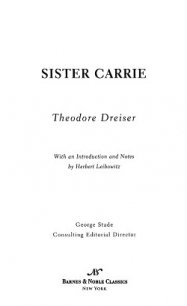Jennie Gerhardt - Драйзер Теодор (книги без регистрации бесплатно полностью сокращений .txt) 📗
seen himself, but the Kane family was too conventional, too set in its
convictions, to find anything strange in this. The Church made no
objection, of course. The family was distinguished. What more could be
desired?
On Wednesday Mrs. Kane arrived. She was greatly distraught, for her
love, like Jennie's, was sincere. She left her room that night when all was silent and leaned over the coffin, studying by the light of the burning
candles Lester's beloved features. Tears trickled down her cheeks, for she had been happy with him. She caressed his cold cheeks and hands. "Poor, dear Lester!" she whispered. "Poor, brave soul!" No one told her that he had sent for Jennie. The Kane family did not know.
Meanwhile in the house on South Park Avenue sat a woman who was
enduring alone the pain, the anguish of an irreparable loss. Through all
these years the subtle hope had persisted, in spite of every circumstance, that somehow life might bring him back to her. He had come, it is true—
he really had in death—but he had gone again. Where? Whither her
mother, whither Gerhardt, whither Vesta had gone? She could not hope to
see him again, for the papers had informed her of his removal to Mrs.
Midgely's residence, and of the fact that he was to be taken from Chicago to Cincinnati for burial. The last ceremonies in Chicago were to be held
in one of the wealthy Roman Catholic churches of the South Side, St.
Michael's, of which the Midgely's were members.
Jennie felt deeply about this. She would have liked so much to have had
him buried in Chicago, where she could go to the grave occasionally, but
this was not to be. She was never a master of her fate. Others invariable controlled. She thought of him as being taken from her finally by the
removal of the body to Cincinnati, as though distance made any
difference. She decided at last to veil herself heavily and attend the
funeral at the church. The paper had explained that the services would be at two in the afternoon. Then at four the body would be taken to the
depot, and transferred to the train; the members of the family would
accompany it to Cincinnati. She thought of this as another opportunity.
She might go to the depot.
A little before the time for the funeral cortege to arrive at the church there appeared at one of its subsidiary entrances a woman in black, heavily
veiled, who took a seat in an inconspicuous corner. She was a little
nervous at first, for, seeing that the church was dark and empty, she feared lest she had mistaken the time and place; but after ten minutes of painful suspense a bell in the church tower began to toll solemnly. Shortly
thereafter an acolyte in black gown and white surplice appeared and
lighted groups of candles on either side of the altar. A hushed stirring of feet in the choir-loft indicated that the service was to be accompanied by music. Some loiterers, attracted by the bell, some idle strangers, a few
acquaintances and citizens not directly invited appeared and took seats.
Jennie watched all this with wondering eyes. Never in her life had she
been inside a Catholic church. The gloom, the beauty of the windows, the
whiteness of the altar, the golden flames of the candles impressed her. She was suffused with a sense of sorrow, loss, beauty, and mystery. Life in all its vagueness and uncertainty seemed typified by this scene.
As the bell tolled there came from the sacristy a procession of altar-boys.
The smallest, an angelic youth of eleven, came first, bearing aloft a
magnificent silver cross. In the hands of each subsequent pair of servitors was held a tall, lighted candle. The priest, in black cloth and lace,
attended by an acolyte on either hand, followed. The procession passed
out the entrance into the vestibule of the church, and was not seen again until the choir began a mournful, responsive chant, the Latin supplication for mercy and peace.
Then, at this sound the solemn procession made its reappearance. There
came the silver cross, the candles, the dark-faced priest, reading
dramatically to himself as he walked, and the body of Lester in a great
black coffin, with silver handles, carried by the pall-bearers, who kept an even pace. Jennie stiffened perceptibly, her nerves responding as though
to a shock from an electric current. She did not know any of these men.
She did not know Robert. She had never seen Mr. Midgely. Of the long
company of notables who followed two by two she recognised only three,
whom Lester had pointed out to her in times past. Mrs. Kane she saw, of
course, for she was directly behind the coffin, leaning on the arm of a
stranger; behind her walked Mr. Watson, solemn, gracious. He gave a
quick glance to either side, evidently expecting to see her somewhere; but not finding her, he turned his eyes gravely forward and walked on. Jennie looked with all her eyes, her heart gripped by pain. She seemed so much a part of this solemn ritual, and yet infinitely removed from it all.
The procession reached the altar rail, and the coffin was put down. A
white shroud bearing the insignia of suffering, a black cross, was put over it, and the great candles were set beside it. There were the chanted
invocations and responses, the sprinkling of the coffin with holy water,
the lighting and swinging of the censer and then the mumbled responses
of the auditors to the Lord's Prayer and to its Catholic addition, the
invocation to the Blessed Virgin. Jennie was overawed and amazed, but
no show of form colorful, impression imperial, could take away the sting
of death, the sense of infinite loss. To Jennie the candles, the incense, the holy song were beautiful. They touched the deep chord of melancholy in
her, and made it vibrate through the depths of her being. She was as a
house filled with mournful melody and the presence of death. She cried
and cried. She could see, curiously, that Mrs. Kane was sobbing
convulsively also.
When it was all over the carriages were entered and the body was borne
to the station. All the guests and strangers departed, and finally, when all was silent, she arose. Now she would go to the depot also, for she was
hopeful of seeing his body put on the train. They would have to bring it
out on the platform, just as they did in Vesta's case. She took a car, and a little later she entered the waiting-room of the depot. She lingered about, first in the concourse, where the great iron fence separated the passengers from the tracks, and then in the waiting-room, hoping to discover the
order of proceedings. She finally observed the group of immediate
relatives waiting—Mrs. Kane, Robert, Mrs. Midgely, Louise, Amy,
Imogene, and the others. She actually succeeded in identifying most of
them, though it was not knowledge in this case, but pure instinct and
intuition.
No one had noticed it in the stress of excitement, but it was Thanksgiving Eve. Throughout the great railroad station there was a hum of
anticipation, that curious ebullition of fancy which springs from the
thought of pleasures to come. People were going away for the holiday.
Carriages were at the station entries. Announcers were calling in
stentorian voices the destination of each new train as the time of its
departure drew near. Jennie heard with a desperate ache the description of a route which she and Lester had taken more than once, slowly and
melodiously emphasised. "Detroit, Toledo, Cleveland, Buffalo, and New York." There were cries of trains for "Fort Wayne, Columbus, Pittsburg, Philadelphia, and points East," and then finally for "Indianapolis, Louisville, Columbus, Cincinnati, and points South." The hour had




